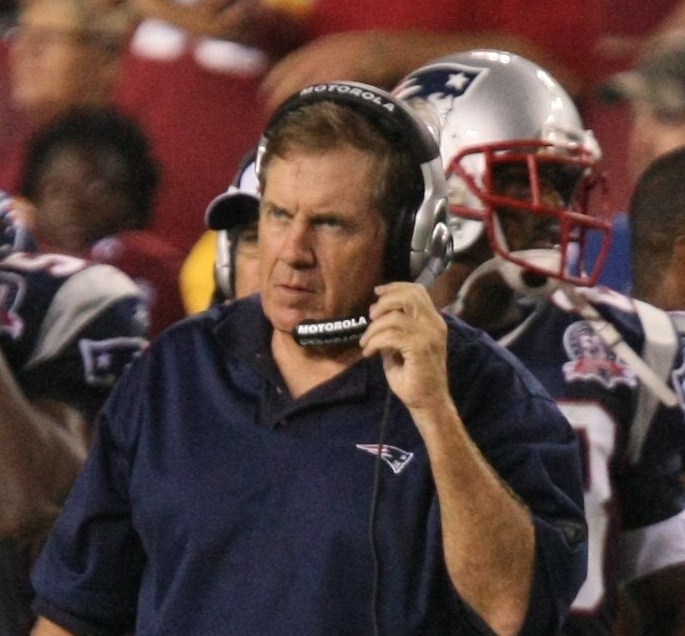
Winning football games, not fans, is Bill Belichick's priority.
But all the media criticism about the New England Patriots coach's fourth-down decision Sunday night would be understandable -- if he had clearly made the incorrect call. That's the problem. Casual football fans, and even the "knowledgable" media are too used to blindly following tradition. It's unfortunate most can't appreciate an unorthodox -- but logical -- decision.
Belichick decided to attempt a fourth-and-2 conversion from the Patriots' 28-yard line instead of punting the ball with a 34-28 lead. The conversion failed, the Patriots turned the ball over on downs and the Colts led a short touchdown drive to win the crucial AFC matchup by one point.
I'm not going to lie. When I saw Belichick send the offense back on the field, I couldn't believe it. But that's not because I thought he was making the wrong decision (I really wasn't sure at the time). It's because he was making a nontraditional decision on national television.
"I thought it was our best chance to win. I thought we needed to make that one play, and then we could basically run out the clock. And, uh, we weren't able to make it," Belichick said in a Monday morning news conference. "I tell the team, and I think they believe, that I do what I feel like is best for our football team to win every game. So I put the team first, and I put those decisions first. And I would hope everybody understands that."
I believe him. Belichick wasn't being arrogant and he wasn't being stupid. He was making the call -- as odd as it seemed -- that he thought gave the Patriots the best chance to win. That's what coaches are paid to do every play, although only late-game situations are so magnified.
And Belichick has done this before. In 2003, he infamously told his long-snapper to send the ball through the back of the end zone for an intentional safety in a game the Patriots were losing by one point with three minutes remaining. The play put New England behind three.
On the surface, allowing the other team to score points is ludicrous. But Belichick is smarter than the average fan, and knew the difference between a one- and three-point deficit at that point in the game is negligible -- in either situation, a touchdown wins and a field goal prevents a regulation loss. The Patriots' field position on their (potential) final drive was more important, and that made the opponent's field position on their final drive crucial.
Belichick determined that a safety kick would likely (not assuredly; he was simply playing the odds) result in better field position than punting from the one-yard line. Of course, none of that would matter if the opponent picked up a first down on their next drive and ran out the clock. But they didn't, and the Patriots started at their 42-yard line and scored the winning touchdown.
The following year, the Detroit Lions followed suit in a similar situation. Don't expect that this time around.
NFL coaches routinely make bad (i.e. conservative) calls for self-preservation. Belichick's name wouldn't be mentioned if the Patriots had punted, and the Colts had scored a game-winning touchdown. Today's stories would be about a monumental collapse by the Patriots defense, and about the legend of Peyton Manning. Belichick inputted himself into the equation because he cares about beating the Colts, and not about a Boston Globe headline.
And, please, let's be aware of hindsight bias. The fact that Belichick's intentional safety ended up working, or that his fourth-down attempt didn't means absolutely nothing regarding the decision itself.
As I expected, Advanced NFL Stats quickly analyzed Belichick's controversial call. The website uses historical NFL data to figure out win probability for a team at any point (using variables such as the score, time remaining, line of scrimmage and down-and-distance). Their conclusion?
Statistically, the better decision would be to go for it, and by a good amount. ... You can play with the numbers any way you like, but it's pretty hard to come up with a realistic combination of numbers that make punting the better option. At best, you could make it a wash.
Head to the website to get an exact analysis, and be prepared to get sucked into several convincing arguments against punting in certain situations. This is the quick explanation:
What are the chances of the Patriots winning if they punt? Advanced NFL Stats says 70% historically, taking into account all the variables. What are the chances of the Patriots winning if they attempt a fourth-down conversion? Advanced NFL Stats says 79% -- the Patriots have a 60% chance of converting the fourth down, enabling them to run out the clock, and a 47% chance of preventing the Colts from scoring if they don't convert the fourth down.
The exact numbers and methodology can be critiqued, but the clear message is that Belichick's decision, at worst, is a tossup. Unless you ignore logic and rely on emotions, it was not a definitively wrong call to keep the punter sidelined.
Nota bene: Belichick did make two other mistakes on that drive. As others have noted, the Patriots should have run the ball on third down if they had already decided to go for it on fourth down (a pet peeve of mine, and one I avoid when playing video games), taking the game past the two-minute warning. Failing to do so, the Patriots also wasted a timeout before the fourth down that rendered them unable to challenge a questionable spot.
No comments:
Post a Comment